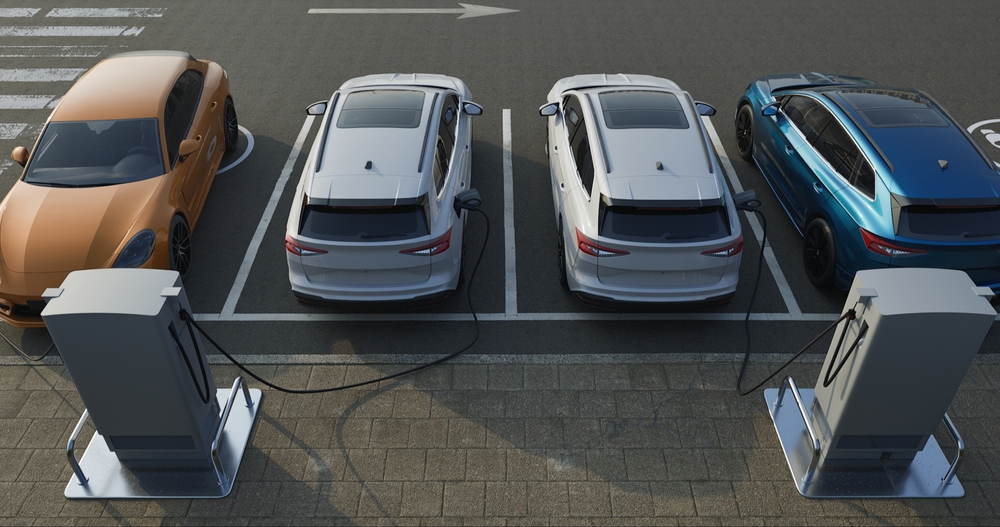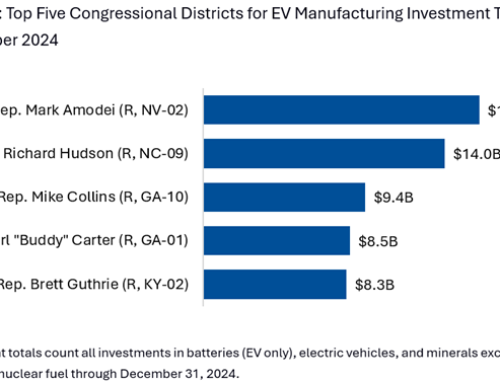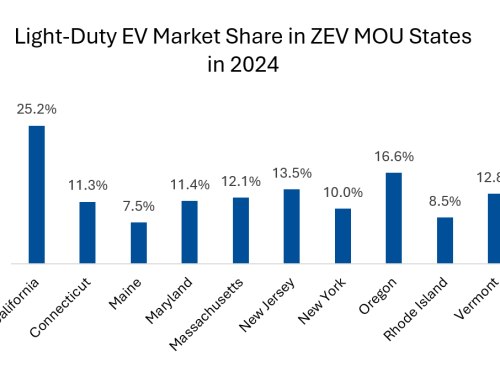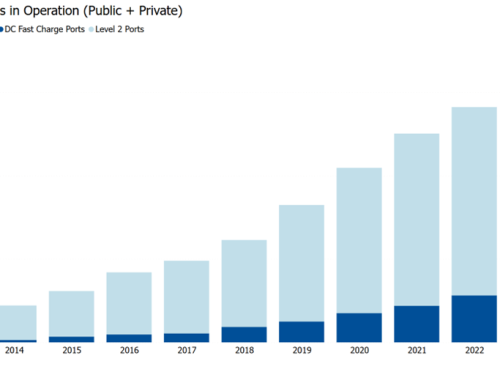
Source: Shutterstock
Dealerships are increasingly becoming key players in the transition to electric vehicles (EVs). As the automotive industry ramps up production of EVs and more consumers shift away from traditional gas-powered vehicles, dealerships are finding themselves at the forefront of this transition. This evolving role requires dealerships to navigate new challenges and opportunities as they adapt to the changing landscape of the auto sector.
In a new report published by Atlas Public Policy (in partnership with the Electrification Coalition), authors Nicole Lepre and Jaclyn Lea interviewed seven dealerships across four states to gain insights into the experiences and challenges dealerships face with EVs. The goal was to identify practical solutions that could improve both consumer and dealer experiences as EV adoption grows. Through these interviews, Atlas aimed to gather valuable feedback on key issues such as dealership experiences with EVs so far, the challenges and opportunities they foresee, and the types of resources, policies, or programs that would help them thrive in the evolving market.
Six key themes emerged from these interviews:
-
Dealers identified consumer demand as the number one driver of dealers’ success or failure at selling EVs.
-
Dealers feel that creating demand for EVs is not entirely their role nor fully in their control.
-
Generally, dealers felt most manufacturer EV requirements were reasonable and saw value in preparing for EV sales.
-
Dealers’ key wishes to help them succeed with EVs align with common EV industry policy goals, such as expanding public charging and helping make EVs more affordable.
-
Dealers emphasized the value of incentive programs being clear, easy to understand, and quick to administer.
-
Dealers mostly expressed little concern about lower service requirements from EVs.
Atlas asked dealers what could help their businesses succeed as EV adoption continues to rise. Many of the dealers’ suggestions aligned with common EV industry policy goals, such as making EVs more affordable and expanding access to charging infrastructure. Dealers also emphasized the value of providing dealers with the resources necessary to support incentive programs and they stressed the importance of making incentive programs simple and predictable. Some also suggested adjusting manufacturer requirements for dealers in regions where demand for EVs may be lower.
Overall, the dealers expressed willingness to sell, lease, and service EVs and pointed to investments they have already made to prepare for this transition. The report suggests that ongoing engagement between dealers and EV advocacy groups, researchers, and industry leaders is crucial to sharing resources and knowledge as EV adoption grows.
Read the full brief here to learn more about dealerships’ perspectives on EVs and takeaways from the interviews.


